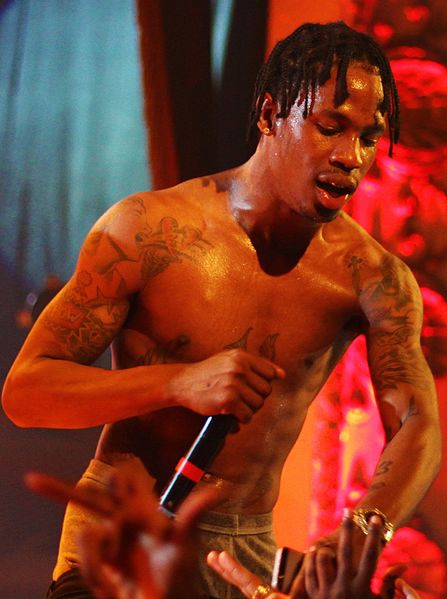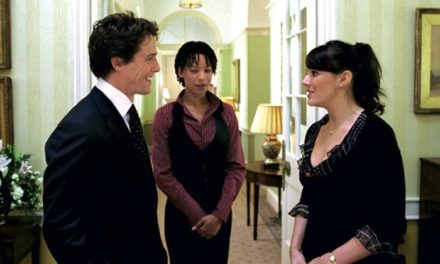
Courtesy of Wikimedia Commons
Travis Scott’s Atlanta stop on his tour for his newest album, “Astroworld,” delivered out-of-this-world psychedelic beats with a surprising mix of vintage and contemporary music, creating a concert experience that was intriguingly nostalgic, but simultaneously futuristic. Opening with his hit “Stargazing,” Scott set the tone for the remainder of the show: ear-numbingly loud bass, exhausting enthusiasm and extraordinary multimedia displays. With a syrupy sweet synth and trippy stage gimmicks, Scott coaxed the audience into a near euphoric state, with one fan even scaling the stage only to dive off into the crowd minutes later.
During the concert, Scott revealed a set list with new music from “Astroworld” and old music from his prior albums, resulting in an auditory aesthetic that blended both present exuberance with past melancholia. His live on-stage performance was mostly adequate, with his vocals occasionally drowned out by the volume of the bass. However, his song choices, when they could be heard, compensated for this tiny indiscretion. Scott’s inclusion of his old album indulged long-time fans who have traveled with Scott throughout his artistic journey since the very beginning of his rodeo.
Scott’s mixture of his musical past and present underscored his development as a musician. Scott traded flash for substance in his songs, and his willingness to expose and recognize his growth in front of thousands of people made the experience much more rewarding. Scott tapped into his vulnerability multiple times throughout the show, acknowledging his prior juvenility. Particularly with his consecutive performances of “90210,” “Skeletons,” “Mamacita” and “Skeletons,” immediately followed by his smash hit “Butterfly Effect,” Scott clarified exactly where he’s come from and where he’s going: youth saturated in youth to adulthood steeped in nostalgia. The combination of these songs, which come from various albums along his musical timeline, illuminated the personal and artistic changes he’s undergone. Scott’s ebb and flow of new with old and old with new echoed the theme of “Astroworld”: a nostalgia for the past while also reveling in the ambiguity of the present moment.
Scott coupled his outlandish vocals with equally intense stage gimmicks, including a mock roller coaster installation and vibrant video displays. Both these multimedia performances enhanced the power of his concert, harkening back to his album’s central motifs: longing, childhood and the present and future. Admittedly, Scott walked a fine line here, as any of his “performance art” pieces easily could have overwhelmed and detracted from his music, but instead they strengthened it. His use of video, depicting an actor as a young Travis Scott and an otherworldly alien woman, augmented not only the experience of his concert, but also the sounds of his music. Most of Scott’s songs rely heavily on trippy synth and hypnotic melodies, so his inclusion of equally trippy and hypnotic artistic devices meshed well with his music. What could have easily ruined his concert ended up as one of its greatest strengths.
Scott’s connection with his fans was clear from the broad setlist he chose to perform to the way he immersed himself in the crowd. One young man even climbed out of the pit onto the stage at Scott’s invitation, where both danced for a couple of minutes before the concert goer dove back into the crowd. For the entire concert, which lasted an hour and 27 minutes, everyone in the arena was jumping up and down, shaking the stands and screaming over the astonishingly loud bass. It felt as if the crowd was fueled by Scott’s energy: as long as he didn’t stop, they wouldn’t either. The undeniable chemistry between Scott and his crowd was bewildering; not only has Scott crafted an impeccable album, he also managed to cultivate an impeccable relationship with his fanbase.
Scott’s concert was undeniably and unfalteringly outstanding. He brought both intensity and mellowness to the stage, juggled nostalgia with excitement and combined his love of music with his love of his fans. His concert was a startling display of what it means to be a performer in the 21st century. In an age when music is accessible 24/7, musicians can release video content anytime they so choose and idols are increasingly connecting with fans on social media to the point of normalcy, it’s difficult to comprehend how performers earn and maintain the label “artist.” However, in one night, Scott revealed exactly how he does it: through conscientiousness, sick beats, interaction with fans and, above all, staying true to his roots. In short, Scott’s show was an earnest showcase of artistry in 2018.




